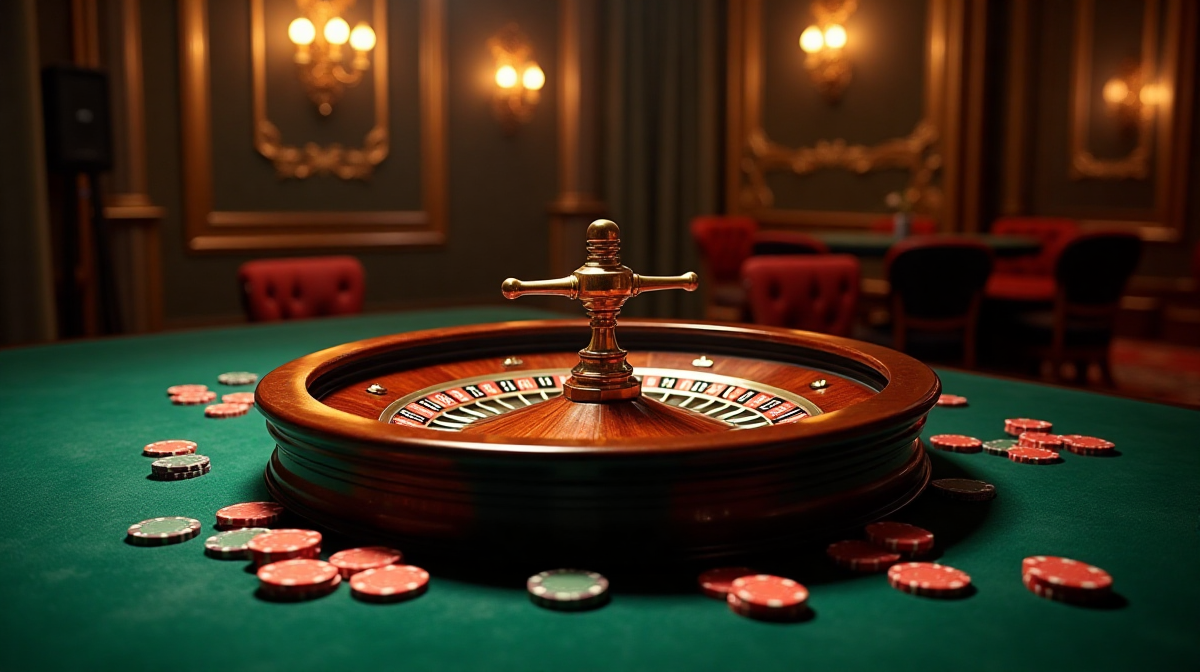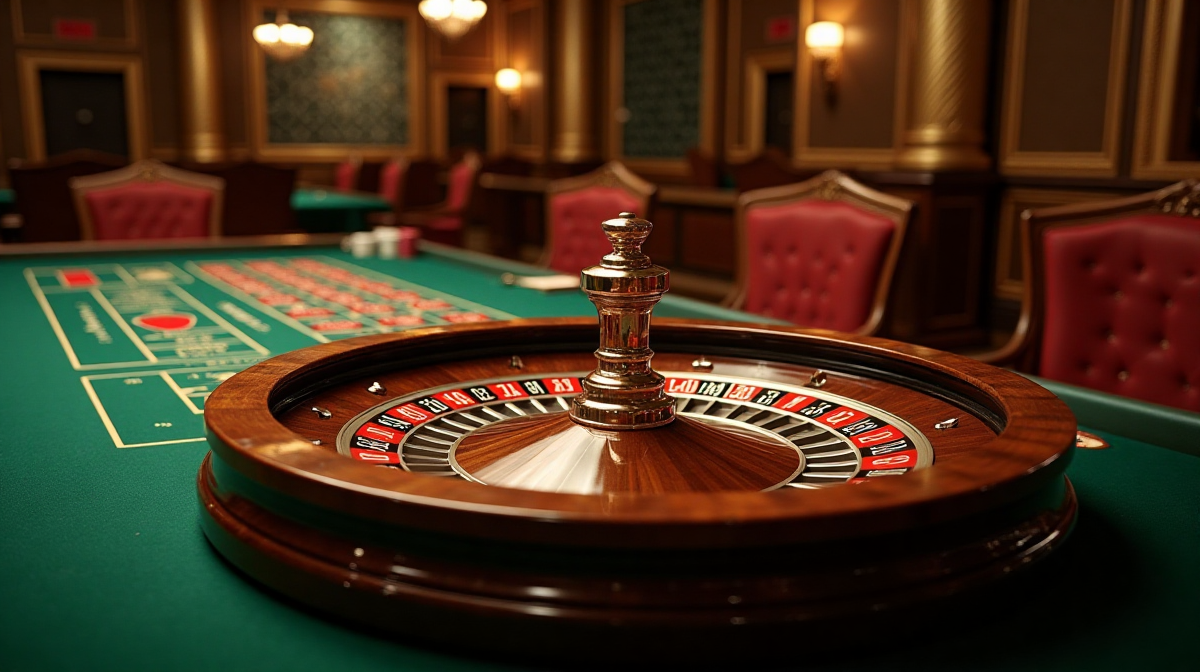17th Century Roulette: A Deadly History
The image of roulette conjures scenes of glamorous casinos, sophisticated players, and the satisfying spin of the wheel. However, the game's origins are far removed from this polished veneer. The story of roulette isn't one of gentle amusement, but a surprisingly violent history rooted in 17th-century Europe. This article delves into the perilous past of roulette, revealing a world of high stakes, ruined fortunes, and even death, linked to its precursor, Hoca. Understanding this history provides a crucial context for appreciating the modern game, and even the modern considerations of security, like needing a betpro login download for safe online play.
Pascal's Scientific Pursuit: The Intent Behind the Wheel
The story of roulette's genesis begins not with gambling, but with science. Blaise Pascal, a renowned 17th-century French mathematician and physicist, was attempting to create a perpetual motion machine. His efforts, though ultimately unsuccessful in their primary goal, resulted in a rotating wheel – a device that would become the foundation for the roulette wheel. Pascal wasn’t interested in creating a game of chance; his focus was on exploring the principles of physics.
The Conceptual Link: From Perpetual Motion to Early Roulette Prototypes
While Pascal's wheel wasn't intended for gambling, its mechanics naturally lent themselves to the creation of a game based on chance. The wheel’s spinning motion and numbered compartments provided a framework for a simple yet compelling betting system. This conceptual leap, from scientific experiment to proto-roulette, was a crucial step in the game’s evolution.
A Society Obsessed: Rising Gambling Culture in France
France in the 17th century was gripped by a gambling fever. The aristocracy, flush with wealth and lacking meaningful occupation, embraced games of chance with enthusiasm. This wasn't simply about the thrill of winning; it was a display of power, a means of social interaction, and a way to alleviate boredom. The culture of risk was pervasive, and it quickly embraced any new opportunity for wagering.
Early Forms of Roulette: Hoca & its Italian/French influences
Before the term “roulette” came into common usage, the dominant game was Hoca, a gambling game originating in Italy and gaining popularity in France. Hoca combined elements of other games, like Biribi, and featured a spinning wheel and numbered compartments. It was this game, with its inherent risks and potential for ruin, that directly paved the way for the roulette we know today.
Origins & Rules of Hoca: A Detailed Explanation of Gameplay
Hoca involved players placing bets on specific numbers or colors on a spinning wheel. The wheel was divided into numbered compartments, and a small ball was released to determine the winning number. Unlike modern american roulette, the initial Hoca wheel didn't have a zero. The dealer would call out the winning number, and successful bettors would receive payouts based on their wagers. The game was relatively simple to understand, making it accessible to a wide range of players.
Stakes & Social Classes: Who Played Hoca and What Were They Betting?
Hoca attracted players from all social classes, though the aristocracy dominated the high-stakes games. Bets ranged from small sums affordable to commoners to enormous fortunes wagered by nobles. The stakes were often incredibly high, with players risking everything – land, titles, and even their futures – on a single spin.
The Deadly Element: High Stakes, Debt, and Duelling Culture
The high stakes associated with Hoca created a breeding ground for financial ruin and social conflict. Aristocrats, accustomed to a life of luxury, frequently accumulated massive gambling debts. Unable to repay these debts, they faced social ostracism, imprisonment, or worse. The prevailing culture of honor dictated that debts be settled, often through duels – a practice that frequently resulted in death.
Legal Status & Suppression: Attempts to Ban Hoca & the Reasons Why
Recognizing the destructive potential of Hoca, authorities repeatedly attempted to ban the game. However, the game’s popularity among the powerful aristocracy made enforcement difficult. Each ban was met with resistance, and Hoca continued to thrive in clandestine gambling dens. The game's allure, combined with the corruption of officials, ensured its persistence despite legal prohibitions.
France's Role: The Transformation in Parisian Salons & Casinos
By the late 18th century, Hoca began to evolve and transform within the Parisian salons and emerging casinos. The game migrated from informal gatherings into more organized settings. This shift coincided with a gradual refinement of the game’s rules and design.

Early Modifications: Changes to the Wheel & Betting Layout
One of the most significant changes was the addition of the zero to the roulette wheel. This alteration, initially intended to give the house an edge, further solidified the game's position as a casino staple. The betting layout also underwent modifications, becoming more standardized and offering a wider range of wagering options. This evolution laid the foundation for the modern roulette experience.
Popularity & Spread: How the Game Gradually Gained Acceptance
As roulette evolved, it gradually shed its association with the dangerous excesses of Hoca. It started to be seen as a legitimate form of entertainment. The game’s popularity spread from France to other parts of Europe, and eventually to the Americas. Its appeal lay in its simplicity, its excitement, and its potential for both large wins and manageable losses.

The Shift in Perception: From Dangerous Vice to Acceptable Pastime
Over time, roulette transitioned from a dangerous vice to an acceptable pastime. The controlled environment of casinos, coupled with increased regulation, helped to mitigate the risks associated with gambling. The game became associated with sophistication and glamour, attracting a wider audience.
Debt & Ruin: The Stories of Aristocrats Bankrupted by Gambling
Historical records are filled with accounts of aristocrats who lost their fortunes – and their reputations – to gambling. Stories of ruined estates, broken families, and social disgrace served as cautionary tales, yet did little to deter the most ardent gamblers. The potential for quick riches proved too tempting for many. The need for secure platforms, like those offering betpro login download, highlights the ongoing concern with protecting finances.
Duels & Honour: Gambling debts as justification for challenges
As mentioned earlier, gambling debts were a frequent catalyst for duels. Aristocrats, bound by a strict code of honor, felt compelled to defend their reputation and settle their debts through personal combat. These duels, often fought with swords or pistols, frequently resulted in serious injury or death.
Cheating & Violence: Scandals & violent confrontations surrounding the game
The high stakes associated with Hoca and early roulette also attracted cheating and fraud. Scandals involving rigged wheels, dishonest dealers, and elaborate schemes were commonplace. These scandals often led to violent confrontations between players, as accusations of cheating escalated into physical altercations.
Case Studies: Historical accounts of individuals impacted by gambling-related violence
Numerous historical accounts document the devastating consequences of gambling-related violence. One notable case involved a French nobleman who, after losing a substantial sum to Hoca, challenged his opponent to a duel. The nobleman was fatally wounded, leaving his family destitute. These stories serve as a stark reminder of the darker side of gambling’s history.
The Introduction of the Single Zero: François Blanc & Monte Carlo’s influence
The introduction of the single zero roulette wheel is largely attributed to François Blanc, who established the Monte Carlo Casino in the mid-19th century. Blanc recognized that a single zero wheel offered a better balance between house advantage and player appeal. He strategically positioned Monte Carlo as a gambling destination, attracting wealthy clientele from across Europe.
Regulation & Control: Efforts to minimize gambling's negative impacts
As roulette gained popularity, governments began to implement regulations aimed at minimizing its negative impacts. These regulations included licensing requirements for casinos, restrictions on advertising, and measures to protect vulnerable individuals. The modern industry demands stringent security, and platforms like those requiring a betpro account number are a testament to this.
The Enduring Allure: Why Roulette Remains Popular Today
Despite its turbulent past, roulette remains one of the most popular casino games in the world. Its enduring allure lies in its simplicity, its excitement, and the element of chance. The game offers a sense of control, as players can choose their bets and strategies, while also embracing the thrill of uncertainty.
Remembering the Origins: A Reflection on the Game’s Unexpectedly Violent Birth
It's crucial to remember the often-overlooked origins of roulette. The modern game, with its glamorous casinos and sophisticated atmosphere, is a far cry from the dangerous world of 17th-century Hoca. Understanding this history provides a valuable perspective on the game’s evolution and the societal forces that shaped it.
Recap of Key Points: The transition from dangerous pastime to sophisticated game
From the scientific pursuits of Blaise Pascal to the deadly games of Hoca, roulette's journey has been marked by transformation. The game evolved from a dangerous pastime associated with financial ruin and violence, to a sophisticated form of entertainment enjoyed by millions worldwide.
The Continuing Gamble: The inherent risk factor that remains central to Roulette’s appeal
Despite the regulations and safeguards in place today, the inherent risk factor remains central to roulette’s appeal. The game is, at its core, a gamble – a test of luck and a challenge to fortune. This element of risk, tempered by the possibility of reward, continues to draw players to the spinning wheel.
Final Thought: Roulette as a microcosm of societal risk-taking and the price of fortune
Roulette, in many ways, serves as a microcosm of societal risk-taking and the price of fortune. It reflects our inherent fascination with chance, our desire for excitement, and our willingness to wager our resources – and sometimes our well-being – on the outcome of uncertain events. It's a reminder that every spin of the wheel carries both the promise of reward and the potential for loss.

